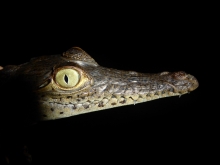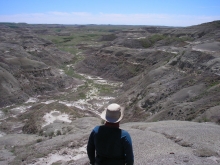Jessica Ford, PhD candidate in the Green Lab of the Redpath Museum has won the Chancellor Gretta Chambers Student Leadership Award in Student Leadership! Read about her story and passion for science in the link below:

Ever wonder what our curators do? Even though we are closed, they are hard at work ensuring the security of our collections, answering inquiries about them and working on collection management projects.
In the article below, learn more about the CAML project. Definitely a must read!

Milton Riaño, McGill’s Climate Change Artist-in-Residence, will curate the Faculty of Science’s Bicentennial Science/Art Exposition, billed as a “celebration of science in all its forms”.
The art show organizers are calling on all members of the McGill community to submit works in any medium, expressing what science means to them.
The deadline for submissions is October 31, 2021.
- Dept. of Anatomy and Cell Biology
- Art Exhibit
- Dept. of Atmospheric and Oceanic Sciences
- Bicentennial
- Dept. of Biochemistry
- Dept. of Biology
- Dept. of Chemistry
- School of Computer Science
- Dept. of Earth and Planetary Sciences (EPS)
- Dept. of Geography
- Dept. of Mathematics and Statistics
- Dept. of Microbiology and Immunology
- Dept. of Pharmacology and Therapeutics
- Dept. of Physics
- Dept. of Physiology
- Dept. of Psychology
- Redpath Museum
- Faculty of Science

McGill University researchers have discovered a new way to track genetically modified animals using the artificial transgenes they leave behind in the environment. The discovery provides a powerful new tool to locate and manage genetically modified animals that have escaped or been released into the wild.

The 2021 Eurêka Festival launched on June 30th, 2021, and McGill Outreach is participating! L'Archipel Virtuel is the first digital edition of the festival.

Congratulations to our student Award winners at the Museum this spring!
The Museum is proud to announce two winners of the annual REDME (Redpath Museum Excellence Award) this year.
Learn more on our Climate Change Artist in Residence Milton Riaño in the article from the McGill Reporter right here.

Victoria Glynn, the public program representative from GARM (Graduate Association of the Redpath Museum), has won the prestigious Vanier Scholarship.

Crocodiles are resilient animals from a lineage that has survived for over 200 million years. Skilled swimmers, crocodiles can travel long distances and live in freshwater or marine environments. But they can’t roam far on land. American crocodiles (Crocodylus acutus) are found in the Caribbean and Pacific coasts of the Neotropics but they arrived in the Pacific before Panama existed, according to researchers from McGill University.

By Véronique Brulé (Office of Science Education)

Artist’s interpretation of Labradormantis guilbaulti in liftoff among the leaves of a sycamore tree, Labrador, around 100 million years ago. The interpretation is based on fossils (for the wings) and living and extinct relatives (for the rest of the body). Fossilized sycamore leaves have been found in the same deposits as the mantis wings and show that this new insect species would have lived in a lush warm temperate forest during the Cretaceous. CREDIT: A. Demers-Potvin

The Faculty of Science is celebrating McGill’s 200th anniversary with a student art exhibition on the theme of “Science!”. McGill students at all levels and all faculties are invited to submit works in any medium, expressing what science means to them.
Faculty of Science bicentennial committee member, Torsten Bernhard, says the aim of the exhibition is to celebrate science in all its forms.
- Dept. of Anatomy and Cell Biology
- Art Exhibit
- Dept. of Atmospheric and Oceanic Sciences
- Dept. of Biochemistry
- Dept. of Biology
- Dept. of Chemistry
- School of Computer Science
- Dept. of Earth and Planetary Sciences (EPS)
- Dept. of Geography
- Dept. of Mathematics and Statistics
- Dept. of Microbiology and Immunology
- Dept. of Pharmacology and Therapeutics
- Dept. of Physics
- Dept. of Physiology
- Dept. of Psychology
- Redpath Museum
- Faculty of Science

It’s known that the primary cause of the mass extinction of dinosaurs, about 66 million years ago, was a meteorite impact. But the exact mechanisms that linked the meteorite impact to mass extinction remain unclear, though climactic changes are thought to have played a part.

Despite having bat-like wings, two small dinosaurs, Yi and Ambopteryx, struggled to fly, only managing to glide clumsily between the trees where they lived, according to a new study led by an international team of researchers, including McGill University Professor Hans Larsson. Unable to compete with other tree-dwelling dinosaurs and early birds, they went extinct after just a few million years.

Our Virtual Tours are talked about in an article on The McGill Tribune!
Read all about it here!
Created by Ingrid Birker of the Redpath Museum and Meghomita Das of the Department of Earth and Planetary Sciences, this tour will take you on an exploration of the fossils found in Montreal on and around the campus.
